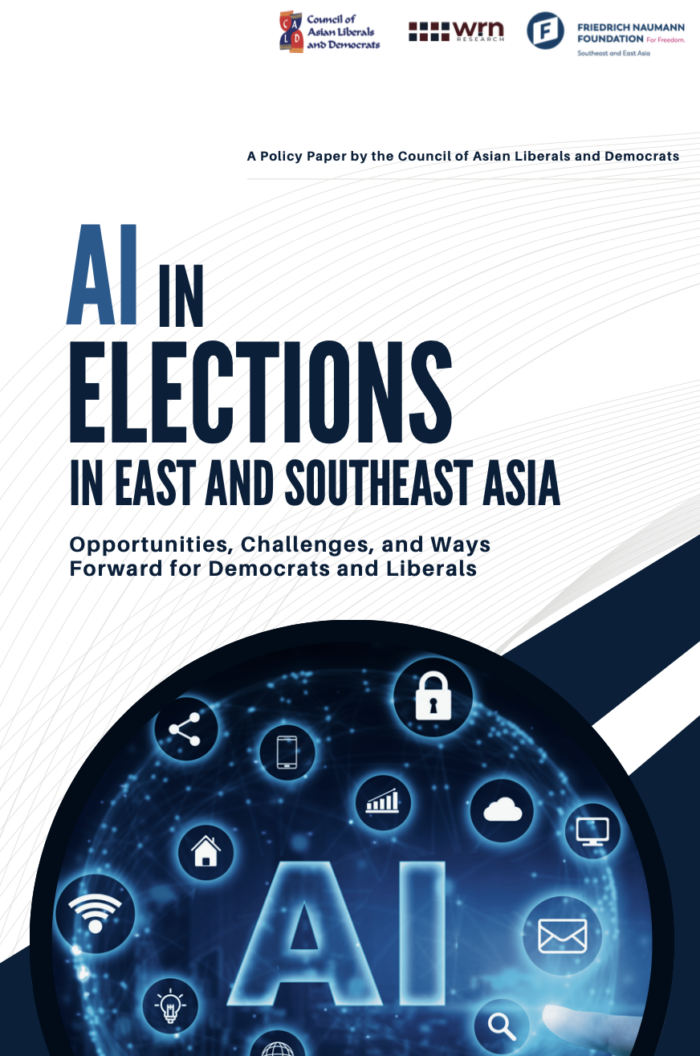 |
AI in Elections in East and Southeast Asia
This report identifies AI’s potential use in voter engagement, voter data analysis, party mobilization and election administration, but also warns of risks such as bias, misinformation, digital divide and cybersecurity threats. |
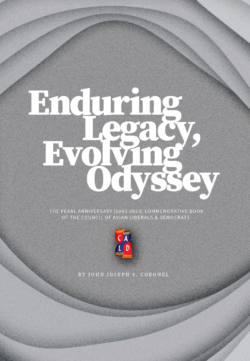 |
Enduring Legacy, Evolving Odyssey
This publication commemorates the milestone of CALD as it enters its fourth decade. But more than just a celebration, this book is a call for deeper self-reflection for CALD members, its stakeholders, and its partners, as we chart together a roadmap for the future. |
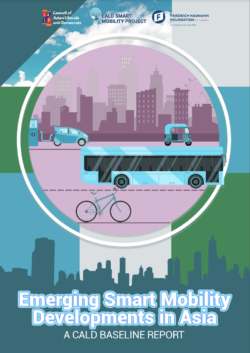 |
Emerging Smart Mobility Developments in Asia This baseline study is one of the first milestones in the three-year Smart Mobility and Infrastructure Development Project of the Council of Asian Liberals and Democrats (CALD).The project aims to provide guidance to local governments governed by CALD member-parties on developing their smart-mobility plans and initiatives.
For the Bahasa Version click here. |
 |
This publication is a collection of podcast interviews CALD had during the pandemic. The podcast, Great Asian Pushback, gathered voices from across Asia to tell their stories of defiance and hope. |
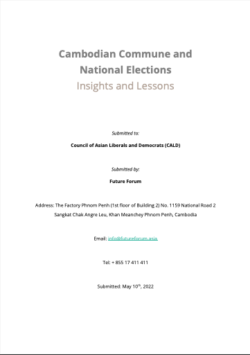 |
Cambodian Commune and National Elections The Council of Asian Liberals and Democrats (CALD) and Future Forum launched a report entitled: Cambodian Commune and National Elections. This report supports collective understanding as to the current challenges and opportunities within the election cycle, with a particular focus on the view of voters at this time |
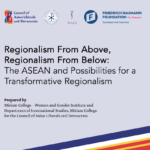 |
Regionalism from Above, Regionalism from Below: The ASEAN and Possibilities for a Transformative Regionalism
This research looks at how regionalism is shaped by both state and non-state actors. It argues that although ASEAN is a key driver of regionalism in Southeast Asia, it has reached a point where it cannot but offer a seat to non-state actors to transform itself into a genuine people-centered regional organization. |
 |
Empowered Communities: Pathways to Cities of the Future
A publication highlighting the participating local governments of Taoyuan (Taiwan), Lumajang (Indonesia), and Banyuwangi (Indonesia) and smart city initiatives as well as the impact it generates to help their community. |
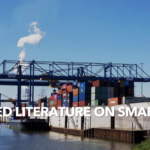 |
Related Literature – CALD Smart City Project
In 2019, CALD launched a Smart City Blueprint Project to assist select local governments under CALD member parties to develop and make recommendations for their smart city design. While smart cities are mostly defined through its technological aspects, recent developments emphasize the quality of government services and citizen welfare. This can make the smart city a political tool for democratic values at the local level at a time when many national governments in Asia are reeling from the effects of populism and authoritarianism.
By reviewing the efforts of other organizations, this document is aimed at helping CALD differentiate the assessment tool that is crucial to is Smart City Blueprint Project from its competition. |
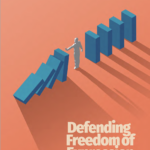 |
Defending Freedom of Expression: Fake News Laws in East and Southeast Asia
Defending Freedom of Expression: Fake News Laws in East and Southeast Asia, by CALD and Asiacentre , is a toolkit for advocates who want to ensure that laws and policies respond to disinformation, and not infringe on freedom of expression. |
 |
Breathing Democracy: A Playbook
Written by Marites Vitug and Criselda Yabes, “Breathing Democracy: A Playbook” is a CALD publication that aims to summarize, in reader-friendly format, the key lessons in fighting authoritarianism, illiberalism and populism, drawn from the experiences of CALD members and other Liberals and Democrats. |
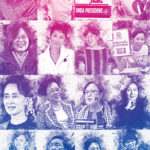 |
Compelled by Duty, Conscripted by Destiny
A coffee table book featuring 16 Asian Women. Many of the 16 women profiled in this book are the keepers of the flame of their illustrious legacies; others are self-made. But all them have been subjected to varying degrees of vilification and persecution. And all of them are portraits of grace under pressure and calm in times of calamity. |
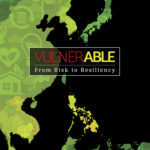 |
VulnerAble: From Risk to Resilliency
“VulnerAble: From Risk to Resiliency” is a handbook that documents CALD’s climate change initiatives in the past years and sets its future climate change agenda. It is divided into three parts: (i) Liberalism and Climate Change; (ii) Environmental Party Agenda and Governance Platform; and (iii) Best Practices in Climate Change Adaptation. |
 |
VulnerAble: From Risk to Resilliency
“VulnerAble: From Risk to Resiliency” is a handbook that documents CALD’s climate change initiatives in the past years and sets its future climate change agenda. It is divided into three parts: (i) Liberalism and Climate Change; (ii) Environmental Party Agenda and Governance Platform; and (iii) Best Practices in Climate Change Adaptation. |
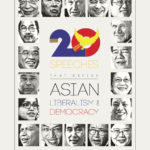 |
20 Speeches That Define Asian Liberalism and Democracy
It is a compilation of 20 memorable speeches that define CALD’s history. More than just representing the evolution of CALD, this collection also captures the development of liberalism and democracy in Asia. |
 |
CALD @ 20: Toward New Horizons
“Toward New Horizons” is a coffee-table book compilation of CALD events throughout the years. It was launched during the celebration of its 20th Anniversary in Manila, Philippines. |
 |
Freedom to Organize: Volume One: Best Practices
“Freedom to Organize Vol. 1: Best Practices” is part of a CALD Political Party Management Series that tackles about the best practices in party management, hoping to make its humble contribution to the maturing of Asian political parties, and consequently, to the cause of democracy and freedom in Asia and beyond. |
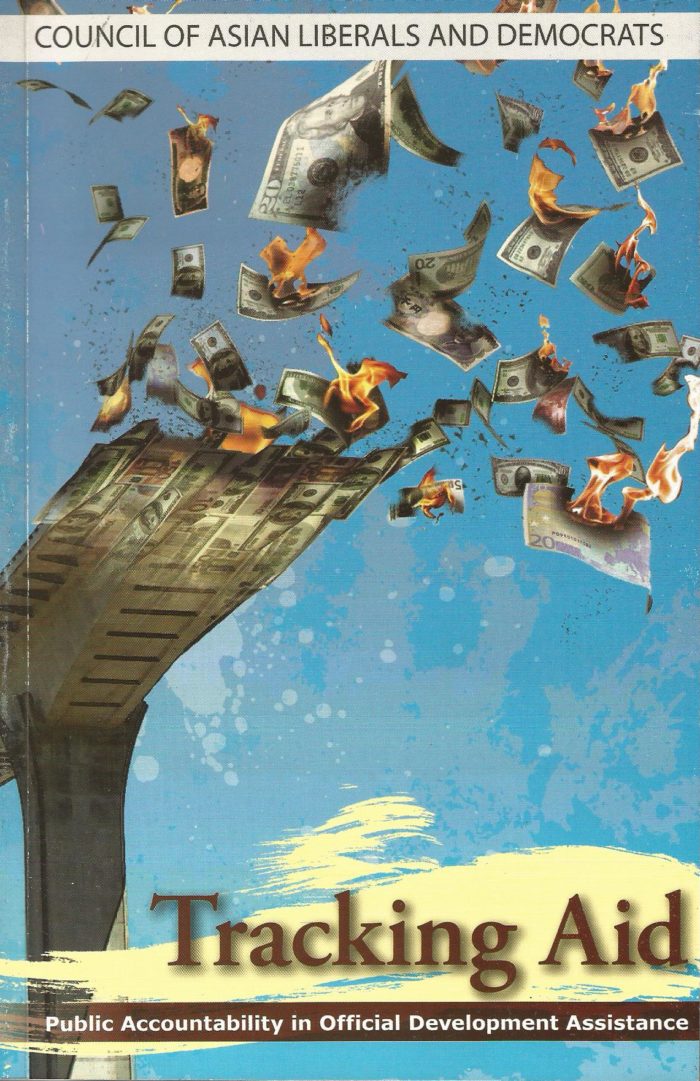 |
Tracking Aid: Public Accountability in Official Development Assistance
“Tracking Aid: Public Accountability in Official Development Assistance” is a collection of essays by parliamentarians, government and international aid agency officials, academics, and members of civil society. most of the essays saw first light as papers presented at an international conference on aid that was organized by the Council of Asian Liberals and Democrats (CALD). This book, in which they now appear along with other contributions, follows the Official Development Assistance (ODA) process from donor institutions and governments to recipient nations and presents experiences from each end. |
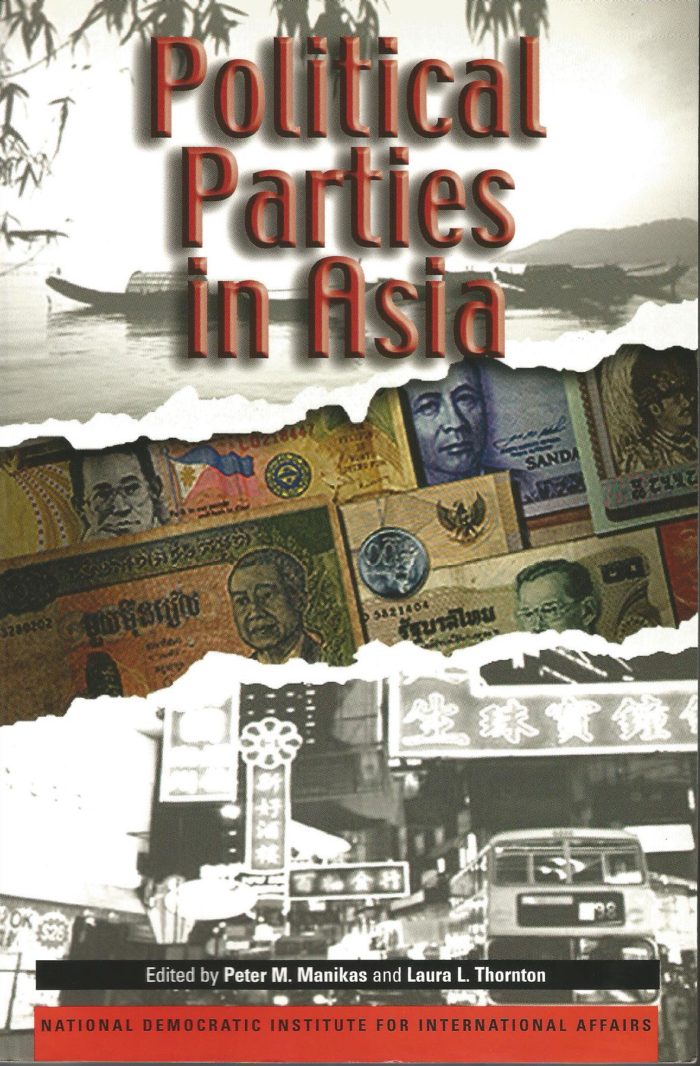 |
Political Parties in Asia
“Political Parties in Asia” has grown out of research conducted for a CALD conference held in Bangkok in January 2002. The conference brought together 28 political parties from eight Asian countries to discuss strategies for combating corruption in the political process. The conference was based on the underlying premise, repeatedly confirmed by the participants, that corruption poses a threat to democratic development. |
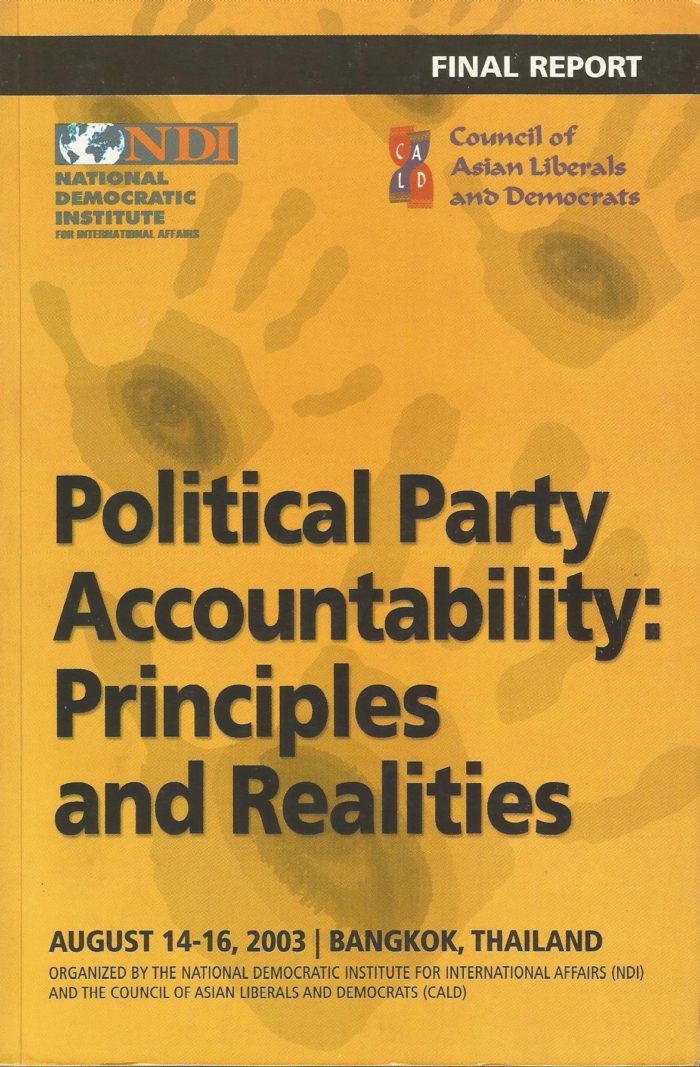 |
Political Party Accountability: Principles and Realities
“Political Party Accountability: Principles and Realities” was the written outcome of a CALD workshop with the National Democratic Institute for International Affairs (NDI) wherein political party leaders and reformers from both ruling and opposition of nine countries to share experiences, network, and challenges in having strong, accountable political parties and in tackling money politics. |
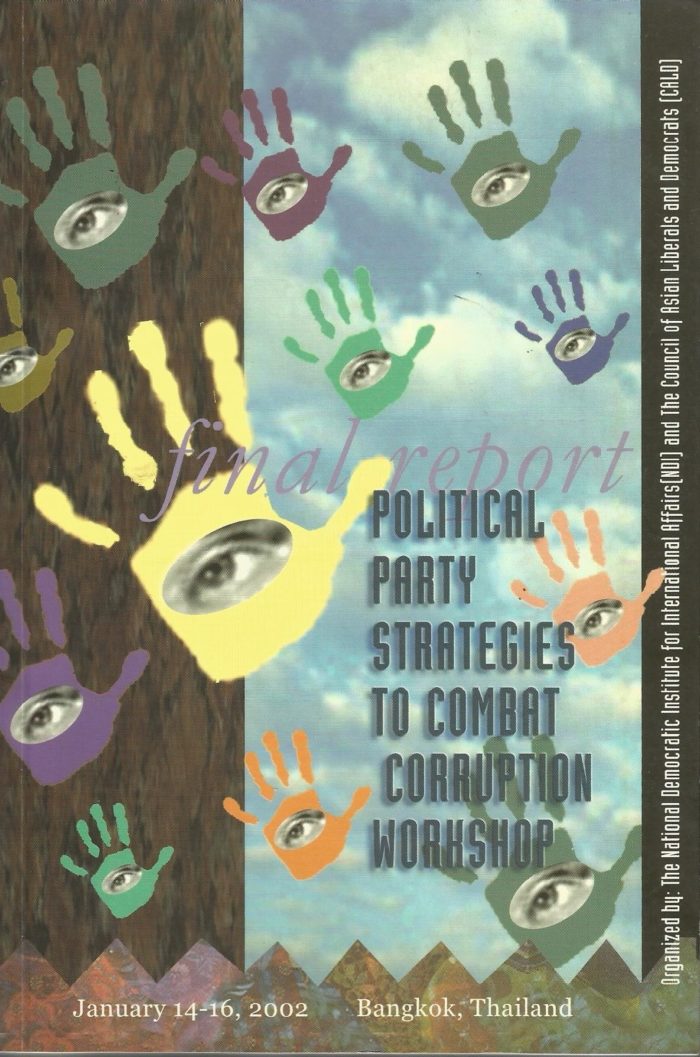 |
Political Party Strategies to Combat Corruption Workshop
This publication was the product of a CALD workshop in collaboration with the National Democratic Institute for International Affairs (NDI) last 14-16 January 2002. This workshop was part of a broader regional program launched in March 2001 to support political parties in their efforts to implement internal reforms through enhanced democracy, accountability, and transparency. |
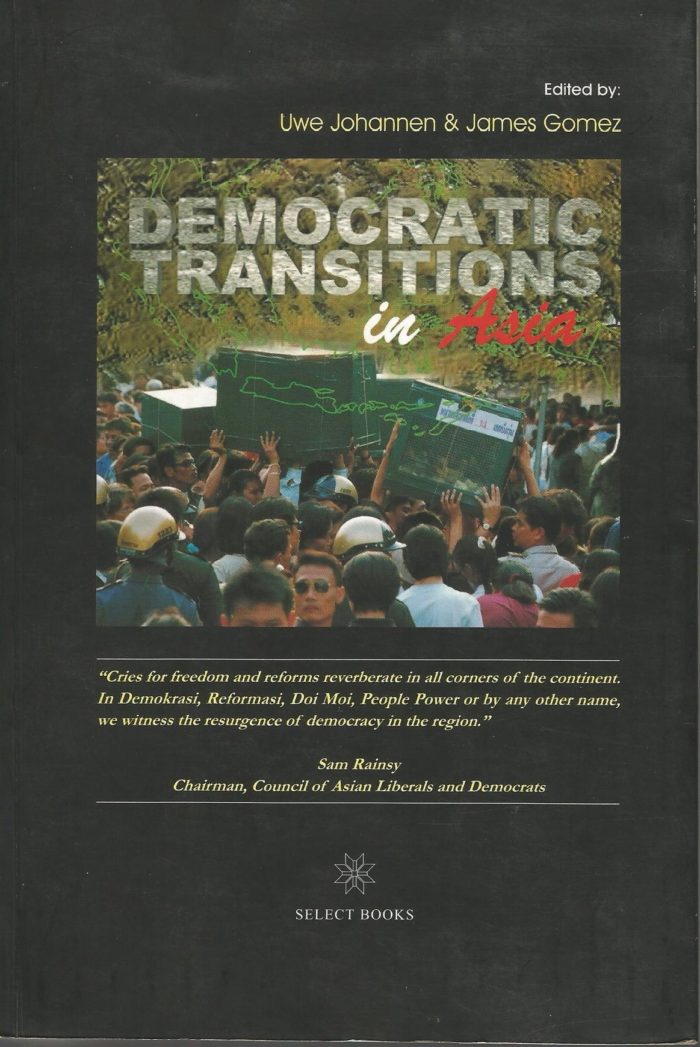 |
Democratic Transitions in Asia
“Democratic Transitions in Asia” focuses on political changes in the Asian region. Since the 1997 economic crisis, countries of the region are seeing greater demands for the accountability of leaders. Symbolic of the region’s continuing struggle for democratisation, the President of South Korea, Kim Dae Jung was awarded the Nobel Peace Prize in 2000, joining other recent Asian Nobel laureates, Aung San Suu Kyi, the Dalai Lama, bishop Carlos Belo, and Jose Ramos Horta.
|
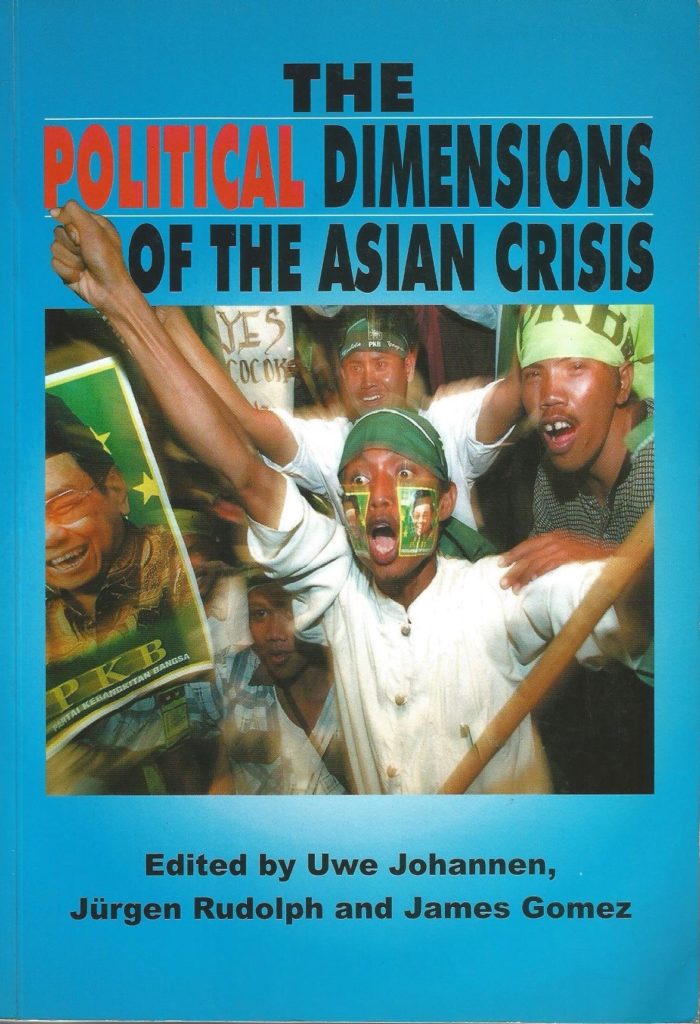 |
The Political Dimensions of the Asian Crisis
“The Political Dimensions of the Asian Crisis” covers new ground by focusing on the politics of what has generally been taken to be an economic crisis. Rising above a strictly academic interpretation, politicians, journalists, and NGO professionals lend their voices in the first critical and insider scrutiny of the political aspects of the Asian crisis. |
 Unit 409, 4/F La Fuerza Plaza 2, 2241 Don Chino Roces Ave. corner Sabio St., 1231 Makati City, Philippines
Unit 409, 4/F La Fuerza Plaza 2, 2241 Don Chino Roces Ave. corner Sabio St., 1231 Makati City, Philippines
 +632 8819 60 71
+632 8819 60 71
 info@cald.org
info@cald.org
